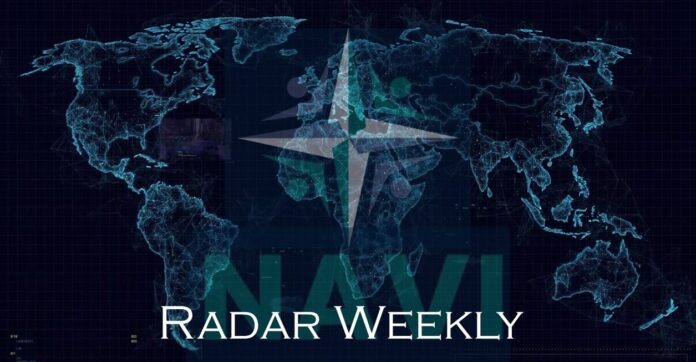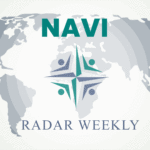Focus Point: Security and Defense Policy-Foreign Interference
China’s overseas police stations: An imminent security threat? | Brookings
Emile Dirks and Diana Fu | A must read | 16.02.2024

What is needed are multi-faceted, evidenced-based policy responses.
Governments must earn the trust of victims of Chinese (NAVI’s note: and all the other autocratic regimes) state intimidation, whose reports they have often ignored. This will require training law enforcement, immigration authorities, and intelligence agencies to recognize and respond to the threat of transnational repression, including its digital forms.
Governments should also work with community stakeholders to provide support to victims, including information on how to document cases of transnational repression.
These measures will not only help victims but also demonstrate democratic states’ resolve in the face of Beijing’s campaigns of foreign interference and transnational repression. state intimidation, whose reports they have often ignored. This will require training law enforcement, immigration authorities, and intelligence agencies to recognize and respond to the threat of transnational repression, including its digital forms. Read more…
Focus Point: Security and Defense Policy- Emerging Threats and Global Risks
General Mark Milley: ‘Americans have kind of had it with wars’ | Financial Times
Demetri Sevastopulo | A must read | 01.03.2024

” A retired general is never really a “private citizen”. said Milley, and he widely believed, for example, to have played a key role in making sure that Trump did not attack Iran in late 2020. He had some bruising experiences in Congress, including when Republicans accused the military of being “woke” and questioned why it was teaching “critical race theory”, which addresses racial privilege. “I’ve read Mao Zedong. I’ve read Karl Marx. I’ve read Lenin. That doesn’t make me a communist,” he quips. “What is wrong with having some situational understanding about the country which we are here to defend?”
Milley is interested in technology, so I ask about the impact of artificial intelligence on the military. He thinks AI, combined with robotics, will play a “fundamental and perhaps even decisive role” in a future armed conflict between nations.
Because China thinks the cost of outright military aggression would be very high. My guess is they’re probably right. Because cost exceeds benefit, China arguably is a rational actor, they’ve chosen not to use military force yet. That doesn’t mean that’ll hold forever.”
I ask Milley about the timelines that several top US officers had issued publicly for possible Chinese action against Taiwan — including one that warned about 2027 — and why no officers have piped up over the past year. He says he did not tell the senior brass to quieten down and is not aware of defence secretary Lloyd Austin having done so.
Milley says Xi Jinping challenged the People’s Liberation Army a few years ago to be the most powerful military power in east Asia by 2027, explaining that what the Chinese president was essentially “talking about is Taiwan”.
That date is tied to the anniversary of the founding of the PLA, so there’s symbolism there. Now, can they achieve that or not is an open question,” says Milley, adding that capability and intent are two separate things.
We pivot to Ukraine and the opposition from Republicans in the House of Representatives to provide more money to help the country. He says the war has reached a “stalemate” and that US and European support is critical. Without that support, he warns, Russia will over time gain a strategic advantage that will be devastating. “It will be tragic, because at that point the Ukrainians will no longer be able to successfully defend themselves.”
Gen (R) Milley on Gaza Conflict: “The key is a political strategy, and I don’t see a political strategy”.
Back on the conflict in Gaza, Milley says “Israel might be better served by shifting gears a little bit and doing an intelligence-driven special operations, precision-guided munitions type of approach.” He thinks they may be contemplating that but sees another problem. “The key is a political strategy, and I don’t see a political strategy”. Read more…
Focus Point: Regional Security- European Security
First ever defence industrial strategy and a new defence industry programme to enhance Europes readiness and security | European Commission
European Commission | 05.03.2024

Today, the European Commission and the High Representative presented the first-ever European Defence Industrial Strategy (EDIS) at EU level and proposed an ambitious set of new actions to support the competitiveness and readiness of its defence industry. The European Defence Industrial Strategy (EDIS) sets a clear, long-term vision to achieve defence industrial readiness in the European Union.
As a first immediate and central means to deliver the Strategy, the European Commission today tables a legislative proposal for a European Defence Industry Programme (EDIP) and a framework of measures to ensure the timely availability and supply of defence products. EDIP includes both financial and regulatory aspects. EDIP will mobilise €1.5 billion of the EU budget over the period 2025-2027, to continue enhancing the competitiveness of the EDTIB.
The European Defence Industrial Strategy (EDIS) sets a clear, long-term vision to achieve defence industrial readiness in the European Union.
To support Member States in achieving these goals, the European Defence Industrial Strategy (EDIS) presents a set of actions aiming at:
- Supporting a more efficient expression of the Member States’ collective defence demand. – Securing the availability of all defence products through a more responsive the European Defence Technological and Industrial Base (EDTIB), under any circumstances and time horizon;
- Ensuring that national and EU budgets support with the necessary means the adaptation of the European defence industry to the new security context;
- Mainstreaming a defence readiness culture across policies, notably by calling for a review of the European Investment Bank’s lending policy this year;
- Developing closer ties with Ukraine through its participation in Union initiatives in support of defence industry and stimulating cooperation between the EU and Ukrainian defence industries;
- Teaming up with NATO and our strategic, like-minded and international partners, and cooperating more closely with Ukraine.
Member States are invited to:
- Procure at least 40% of defence equipment in a collaborative manner by 2030;
- Ensure that, by 2030, the value of intra-EU defence trade represents at least 35% of the value of the EU defence market;
- Make steady progress towards procuring at least 50% of their defence procurement budget within the EU by 2030 and 60% by 2035.
The European Defence Industry Programme (EDIP) is the new legislative initiative that will bridge from short-term emergency measures, adopted in 2023 and ending in 2025, to a more structural and longer-term approach to achieve defence industrial readiness. Read more…
Focus Point: Social, Economics & Security- Social Studies
Türkiye: reverse a critically hostile environment for freedom of expression and for journalists, human rights defenders and civil society |Council of Europe
Council of Europe | Memorandum | 05.03.2024

“Freedom of expression is in peril in Türkiye, with journalists, human rights defenders and civil society operating in a critically hostile environment, marked by systematic pressure and legal action against them”, said the Council of Europe Commissioner for Human Rights, Dunja Mijatović, releasing today a Memorandum on freedom of expression and of the media, and the situation of human rights defenders and civil society in Türkiye.
Dunja Mijatović “Freedom of expression is in peril in Türkiye, with journalists, human rights defenders and civil society operating in a critically hostile environment, marked by systematic pressure and legal action against them”
The deterioration of freedom of expression in Türkiye has reached new, deeply worrying levels, characterised by numerous blatant violations of human rights standards. As time goes by with the authorities failing to address these violations, the damage caused to media freedom and freedom of expression in Türkiye leaves an increasingly deep mark, leading to self-censorship by journalists and independent media. The same can be said for the public in general, including the younger generation. All in all, the situation has generated an impoverished, one-sided public debate.
“The judicial actions targeting journalists, civil society, human rights defenders and lawyers remain the most worrying manifestation of continuous and concerted pressure exerted in a deliberate attempt to silence critical voices and to prevent them from reporting on ongoing human rights violations in Türkiye”, said the Commissioner.
The right to freedom of peaceful assembly has also been seriously undermined by systematic bans, heavy-handed policing, including the excessive use of force, mass arrests and the frequent use of criminal charges against demonstrators. Bans have particularly targeted events organised by or in support of LGBTI people, women and environmental human rights defenders. “The authorities should investigate all cases where excessive use of force has been used against participants of peaceful assemblies organised in recent years despite the bans. It is particularly regrettable that the International Women’s Day March in Istanbul has been banned for the last eight years.”
The Commissioner also points to the existential risk to the rule of law and to the respect for all human rights guaranteed under the European Convention on Human Rights posed by longstanding problems with regard to the independence and impartiality of the Turkish judiciary.
The Commissioner also points to the existential risk to the rule of law and to the respect for all human rights guaranteed under the European Convention on Human Rights posed by longstanding problems with regard to the independence and impartiality of the Turkish judiciary.
“To bring about meaningful change, it is essential for the Turkish authorities to engage constructively with civil society, review and revise restrictive laws, free human rights defenders, journalists, activists, and others who are imprisoned for exercising their freedom of expression, respect and implement the judgements of the Constitutional Court and the European Court of Human Rights and ensure impartiality and independence of the judiciary”, concluded the Commissioner. Read more…
Focus Point: Regional Security- European Security
Germany, France and how not to do deterrence | Financial Times
Constanze Stelzenmüller | 05.03.2024

The EU’s two leading powers are causing confusion and anger among allies as Ukraine’s future hangs by a thread.
This is the brutal truth: the two key actors in continental Europe are bungling the strategic response to Europe’s greatest security threat in a generation, while Ukraine’s future is hanging by a thread.
France, its president’s acrobatics notwithstanding, at least has a powerful deterrent in its nuclear weapons. Germany’s government — despite its immense financial commitments and frenetic efforts to produce more weapons — appears to think that clinging to the US is a grand plan. Where it ought to have a Europe strategy, or a Russia strategy, there is a conceptual void. And the only thing it is deterring is itself. Read more…
Focus Point: Security and Defense Policy-Defense Discussions
Europe kicked out Vladimir Putin’s spies. Now they’re back |Financial Times
John Paul Rathbone, Sam Jones and Courtney Weaver | 06.03.2024

Russian spymasters have strengthened their bases outside the EU’s passport-free Schengen zone. Turkey (NATO Member) and the United Arab Emirates in the Middle East have become important staging posts for Russian intelligence operations in Europe, according to the official.
Since then, Russia’s main intelligence services — GRU military intelligence, the FSB Federal Security Service, and the SVR foreign intelligence agency — have regrouped and revamped their spycraft to improve the chances of Russia’s conventional military operations. The priorities remain the same as before the war: to steal western secrets, widen divisions within Nato and undermine support for Ukraine. But the methods have become more ingenious to compensate for their disrupted espionage networks in Europe and to circumvent restrictions on Russians working in the continent.
- One of the Kremlin’s biggest changes seems to be the increased use of “proxy” intelligence actors. Before the war, western agencies mostly dealt with Russian operations carried out by Russian nationals across Europe. Today, that may no longer be the case. The Kremlin has also applied pressure on Russian exiles to co-opt them and other opponents of the regime who fled abroad after the war started.
- But operational security can also be slapdash, and proxies can be hard to control without an on-the-ground agent to direct them. To address that, Russia’s GRU military intelligence unit has begun recruiting “cleanskins”, or agents without any military background, to cross undetected into target countries and establish personal contacts, according to a recent report by the Royal United Services Institute think-tank in London.
- To some extent, the old model of “legal” Russian spies working out of embassies still holds in traditionally neutral countries such as Austria and Switzerland.
In addition, Russian spymasters have strengthened their bases outside the EU’s passport-free Schengen zone. Turkey and the United Arab Emirates in the Middle East have become important staging posts for Russian intelligence operations in Europe, according to the official. Several expelled Russian agents have also reportedly relocated to Serbia’s capital Belgrade, which maintains good relations with Moscow.Read more…
Focus Point: Security and Defense Policy- Emerging Threats and Global Risks
Is the US-China relationship the most consequential relationship for America in the world? | Brookings
Graham T. Allison, Josh M. Cartin, Elizabeth Economy, Susan A. Thornton, Ryan Hass, Patricia M. Kim, and Emilie Kimball | 06.03.2024

The invitation from Brookings’ debate organizers asked: “Is the U.S.-China relationship the most consequential bilateral relationship for the United States in the world?”
My answer is: yes. If not China, who?
China is:
- one of only two nations that poses an existential threat to the United States.
- the only nation that poses a systemic threat to the U.S. position as the global leader, architect, and guardian of the post-World War II international order.
- the largest emitter of greenhouse gases—accounting for more emissions in 2022 than the United States and Europe combined.
- the second backbone of the world economy: the manufacturing workshop of the world, the No. 1 trading partner of most countries in the world (including the European Union and Japan), and the supplier of most critical items (including everything green and clean) in global supply chains.
- both a classic Thucydidean rival and America’s inseparable, conjoined Siamese twin . Read more…
Focus Point: Regional Security- NATO
Trump-Proofing NATO: 2% Won’t Cut It | RUSI
Lotje Boswinkel | 07.03.2024

The strategic conversation on how to ‘Trump-proof’ NATO should focus not on a budget target but on the roles and responsibilities European allies need to fulfil to close the Alliance’s emerging deterrence and commitment gaps. When focusing on the ends rather than the means, Europeans may find that 2% is not enough.
If European capitals want Washington to understand that the security of all allies is indivisible, they should believe it themselves – and make this belief evident to allies and adversaries alike.
The effort ahead is daunting, without doubt. But Europe has little choice, and those who await the outcome of the November elections waste valuable time. Because the issue at stake is this: while European capitals may still not be able to fully imagine a US withdrawal, Moscow can. This means that if Trump wins, by 2025, the risk of spillover to NATO territory will be unprecedented in the post-Cold War period. And one thing is clear: in case of a Russia–NATO conflict, European defence spending will no longer be limited to 2% – with or without US support. Read more…
Focus Point: Security and Defense Policy- Emerging Threats and Global Risks
Remarks of President Joe Biden — 2024 State of the Union Address As Prepared for Delivery, Annotated | National Academies
National Academies | 09.03.2024

President Joe Biden delivers the annual State of the Union address before a joint session of Congress in the House chamber at the Capital building on March 7 in Washington, DC. Shawn Thew/Pool/Getty Images
President Biden: In January 1941, President Franklin Roosevelt came to this chamber to speak to the nation. He said, “I address you at a moment unprecedented in the history of the Union.” Hitler was on the march. War was raging in Europe. President Roosevelt’s purpose was to wake up the Congress and alert the American people that this was no ordinary moment.
Freedom and democracy were under assault in the world. Tonight I come to the same chamber to address the nation Now it is we who face an unprecedented moment in the history of the Union And yes, my purpose tonight is to both wake up this Congress, and alert the American people that this is no ordinary moment either.
Not since President Lincoln and the Civil War have freedom and democracy been under assault here at home as they are today. What makes our moment rare is that freedom and democracy are under attack, both at home and overseas, at the very same time. Read more…
Full Transcript: Read President Joe Biden’s 2024 State of the Union Address
See for more https://lnkd.in/e2KmZYRK
Focus Point: Regional Security- European Security
Germany: The Weakest Link | CEPA
Edward Lucas | 10.03.2024

Germany’s self-indulgent aversion to hard thinking about security lies partly in its two catastrophic defeats in the last century and its role as a potential nuclear battleground during the Cold War. That stokes anti-Americanism and anti-militarism. “Even the worst peace is better than the best war,” said a leading German think-tanker as Ukraine began its struggle for survival. The idea that freedom might be worth dying for counts for nothing.
Western allies can work around toxic decision-making in small countries such as Austria, Hungary, and Slovakia. But Germany is too big to ignore. Germany clearly needs a new security policy. But the rest of us need a new policy toward Germany. Read more…
The NAVI Research Institute is the research division of NATO Veterans Initiative - NAVI that provides a unique perspective to transatlantic leaders and societies on peace and security through the lens of NATO's founding principles of rule of law, democracy, human rights, and individual liberties. The NAVI Research Institute was officially established by the NAVI Board on July 16th, 2023.



